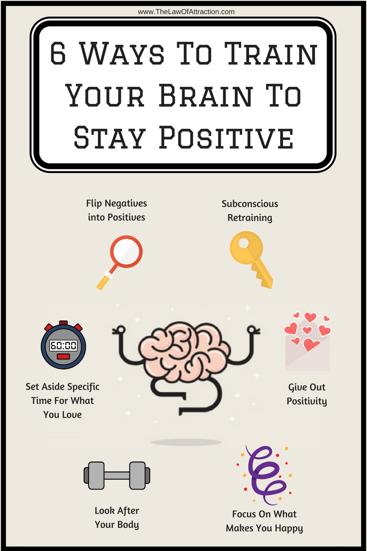How To Train Your Brain to Think Positively
Techniques and Strategies for Fostering a Positive Mindset

Frequently Asked Questions
Positive thinking improves mental health, enhances resilience, increases overall happiness, and can lead to better physical health.
Practicing gratitude, connecting with supportive people, and focusing on your strengths can help you maintain positivity during difficult periods.
Step by Step Guide
1
Understand Negative Thinking Patterns
Begin by identifying your negative thought patterns. Pay attention to when you criticize yourself or expect the worst. Make a note of these thoughts to understand their triggers.
2
Challenge Negative Thoughts
Once you identify negative thoughts, challenge them. Ask yourself if they are based on facts or assumptions. Replace negative thoughts with positive affirmations.
3
Practice Gratitude Daily
Keep a gratitude journal. Write down three things you are grateful for each day. Focusing on positive aspects of your life can shift your mindset.
4
Engage in Positive Affirmations
Create a list of positive affirmations that resonate with you. Recite them daily, especially during times of stress or negativity. This reinforces positive thinking.
5
Surround Yourself With Positivity
Limit time with negative people. Spend more time with those who uplift and inspire you. Their positive energy can influence your own mindset.
6
Visualize Success
Practice visualization techniques. Spend a few minutes each day imagining yourself achieving your goals. This can create a positive expectation for the future.
7
Practice Mindfulness and Meditation
Engage in mindfulness meditation to clear your mind of negativity. Focus on the present moment and allow positive energy to flow through you.
8
Physical Exercise as a Mood Booster
Incorporate physical activity into your routine. Exercise releases endorphins, which are natural mood lifters, helping to cultivate a positive mindset.
9
Set Realistic Goals
Break down your goals into achievable steps. Celebrate small victories, as they help build confidence and a positive outlook on life.
10
Seek Professional Help If Needed
If persistent negative thoughts interfere with your daily life, consider seeking help from a mental health professional. Therapy can provide valuable tools for positive thinking.








